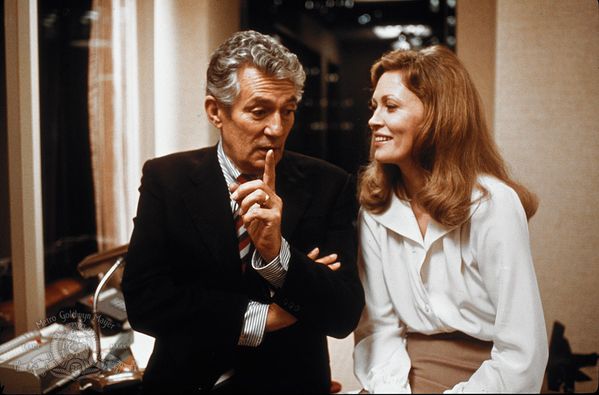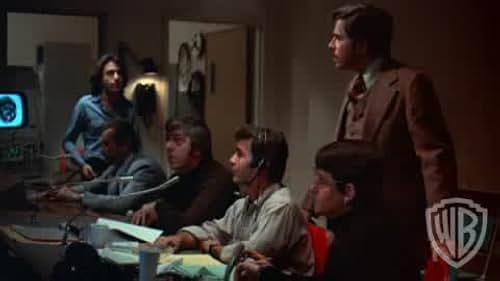Network (1976)

Network is a groundbreaking satirical drama that critiques the state of television journalism and the media landscape of the 1970s. Released in 1976 and directed by Sidney Lumet, the film features a stellar cast including Peter Finch, Faye Dunaway, Robert Duvall, and William Holden. Renowned for its sharp dialogue and prescient commentary, Network remains a relevant exploration of the intersection between entertainment and news, foreshadowing the sensationalism that would dominate media in the decades to come.
The narrative centers around Howard Beale (Peter Finch), an aging news anchor who, after being informed that he will be fired due to declining ratings, delivers a shocking on-air announcement that he will commit suicide. Instead of facing backlash, Beale’s candidness resonates with viewers, leading to a surge in ratings for the network. Seizing this opportunity, the executives at UBS, particularly the ambitious and ruthless programming head Diana Christensen (Faye Dunaway), decide to exploit Beale’s breakdown for profit. They transform his rants into a sensationalized television program, turning him into a media sensation.

At its core, Network explores themes of authenticity, madness, and the commodification of human suffering. Howard Beale becomes a symbol of the struggle against the facelessness of corporate media, as he passionately decries the moral decay of society. His famous line, “I’m as mad as hell and I’m not going to take this anymore!” resonates deeply, capturing the frustrations of a disillusioned public. Finch’s powerful performance earned him an Academy Award for Best Actor, cementing Beale’s legacy as one of cinema’s most memorable characters.

Diana Christensen, portrayed by Faye Dunaway, represents the morally ambiguous nature of media executives who prioritize ratings over integrity. Her character embodies the ruthless ambition that drives much of the entertainment industry, as she manipulates Beale’s mental breakdown for her own gain. Dunaway’s portrayal is both captivating and chilling, showcasing the lengths to which individuals will go to achieve success in a cutthroat environment. Her performance also earned her an Academy Award for Best Actress, highlighting the film’s strong characterizations.

The film’s screenplay, penned by Paddy Chayefsky, is celebrated for its incisive wit and remarkable dialogue. Chayefsky’s script not only critiques the media but also reflects broader societal anxieties about consumerism and disconnection in modern life. The film’s sharp, fast-paced exchanges and monologues provide a satirical lens through which to view the absurdities of the television industry.

Visually, Network employs a straightforward yet effective style, allowing the performances and dialogue to take center stage. The use of television studio settings creates an intimate atmosphere that immerses viewers in the world of broadcasting, while also serving as a metaphor for the artificiality of the media landscape. The film’s editing enhances the frenetic energy of the newsroom, emphasizing the chaos and urgency that accompany the pursuit of ratings and viewer engagement.
Network received critical acclaim upon its release, winning four Academy Awards, including Best Screenplay, Best Actor, Best Actress, and Best Supporting Actress for Beatrice Straight. Its influence can be seen in subsequent films and television shows that tackle similar themes of media ethics, sensationalism, and the impact of television on society.
In conclusion, Network is a masterful satirical drama that offers a scathing critique of the media industry and its impact on society. Through the story of Howard Beale and the machinations of television executives, the film explores themes of authenticity, ambition, and moral decay in a world driven by ratings. With powerful performances, sharp writing, and a prescient perspective on the media landscape, Network remains a timeless commentary on the challenges of maintaining integrity in the face of commercial pressures. It serves as a reminder of the importance of truth and accountability in journalism, making it a relevant and thought-provoking work that continues to resonate with audiences today.











